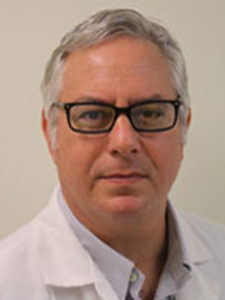
The Annual Meeting Planning Committee has raised the bar for the Basic Science track.
“We always think about, ‘Why does the rheumatologist care?’ when planning these sessions,”
said Basic Science Subchair Gregg Silverman, MD, Professor of Medicine and Pathology at the New York University School of Medicine. “These sessions are sentinels to announce new insights that will result in changes in our approach to diagnosis and understanding of pathogenesis as well as therapeutic interventions.”
Dr. Silverman highlighted some of the Basic Science sessions of interest:
Gout and Hyperuricemia: New Syntheses of Basic & Translational Advances (7:30 am Tuesday, October 23): Leading researchers from around the world explore the underlying genetic factors that predispose humans to hyperuricemia, Dr. Silverman said. The genetic flaws that make individuals more susceptible to this common inflammatory arthritis carry significant metabolic and immunologic implications.
Missing Microbes: Lost from Our Clinics (9:00 am Sunday, October 21): The microbiome is more than the microbial communities that live within each of us. Humans co-evolved with their microbiomes and cannot live without them. “Since Louis Pasteur introduced the concept of microbial basis of infectious diseases, we’ve taken a number of measures in our medical approaches and in our lives that may have shifted the balance of microbes within us,” Dr. Silverman said. “How we live, how we clean our environments, what we eat every day, and how we treat disease may be contributors to the epidemics we now have of autoimmunity and allergies.”
Rheumatic Immune-Related Adverse Events from Cancer Immunotherapy (11:00 am Monday, October 22): “There has been an exciting revolution in the treatment of advanced cancer,” Dr. Silverman said. “Checkpoint inhibitors are intended to induce an autoimmune response to cancer. The perhaps predictable side effect is that they seem to trigger autoimmune disease in some patients. We have to decide whether there are ways of ameliorating the condition with antiinflammatory drugs or other approaches and what is worse, the autoimmune disease or the state of the cancer?”
What’s New in the Genomics of AAV? (11:00 am Tuesday, October 23): New genomic studies are beginning to unravel the genetics of ANCA-associated vasculitis and suggest techniques to assess individual susceptibility.
Other key sessions have emerged from the Accelerated Medicine Partnership, a joint venture between the NIH and industry that seeks to shorten the translation time between basic discoveries and clinically relevant findings.
Lupus Nephritis: Immune Cell Networks and Pathogenesis (8:30 am Monday, October 22) looks at adaptive immune responses in the kidney to lupus and new approaches to interrogate cellular interactions within the kidney microenvironment.
Synovial Phenotype Heterogeneity in RA and OA (8:30 am Tuesday, October 23) will explore the clinical implications of recent findings showing surprising heterogeneity in cytokine production, gene expression, and cellular composition of synovium in both RA and OA.
